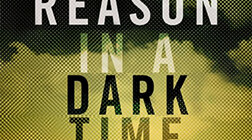In 1997 a distinguished group of scientists published an influential article in which they concluded that "it is clear that we live on a human-dominated planet." Some scientists propose that we have entered a new geological era, the Anthropocene. NYU’s Dale Jamieson sketches a partial account of how to live in this new era, focusing on "green vitrues."
In 1997 a distinguished group of scientists published an influential article in which they assessed the human impact on the Earth. They calculated that between one-third and one-half of Earth's land surface had been transformed by human action; that carbon dioxide in the atmosphere had increased by more than 30 percent since the beginning of the industrial revolution; that more nitrogen had been fixed by humanity than all other terrestrial organisms combined; that more than half of all accessible surface freshwater was being appropriated by humanity; and that about one-quarter of Earth's bird species had been driven to extinction. This led them to conclude that "it is clear that we live on a human-dominated planet."
The challenge we face is not (only) to reduce or stabilize concentration of atmospheric carbon dioxide, but to live in productive relationship with the dynamic systems that govern a changing planet. This is a new challenge because humanity is young and now constitutes an important planetary force in a way that is unprecedented.
Anthropogenic climate change is the harbinger of a new world in which humans have become a dominant force on Earth's natural systems. In recognition of the increasing human domination of the planet, some scientists propose that we have entered a new geological era, the Anthropocene. Climate change may be the first challenge of the Anthropocene but it is not the last. What is needed is an ethic for the Anthropocene—not only a climate change ethics. For it is in the world of the Anthropocene that we and our descendants will have to live and find meaning.
NYU's Dale Jamieson sketches a partial account of how to live in the Anthropocene, focusing on what he calls "the green virtues."

